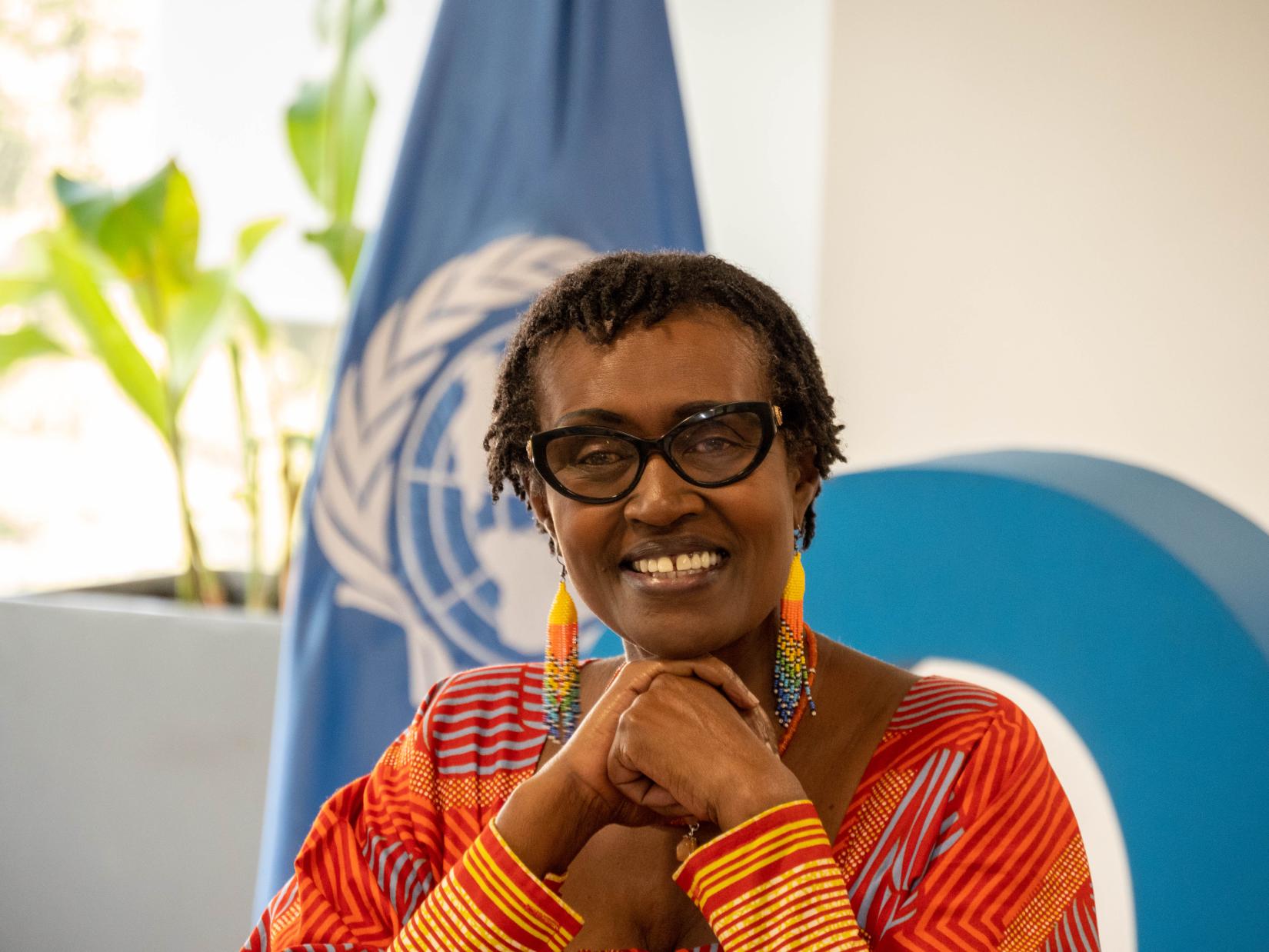Press release. UNAIDS Executive Director, Winnie Byanyima visits Colombia.
24 julio 2023
UNAIDS Executive Director, Winnie Byanyima, is in Colombia joining women leaders to commemorate the International Afro-descendant Women's Day and to support greater efforts to end AIDS in the country by 2030

Bogotá, 24 July 2023—The United Nations Under-Secretary-General and Executive Director of the Joint United Nations Programme on HIV/AIDS (UNAIDS), Winnie Byanyima, is in Colombia for a four-day visit to Bogotá and Cali. The visit is part of the commemorations of the International Afro-descendant Women's Day (July 25), celebrated since 1992 as a platform to promote public policies that defend the rights and dignity of women of African descent and combat prejudice, racial injustice, and discrimination.
"Racism and racial discrimination perpetuate social and economic inequalities, negatively impacting the health and lives of people of colour and indigenous people," says the UNAIDS Executive Director. "We are committed to supporting governments, communities, and different stakeholders to advance efforts to end racism, gender inequality, discrimination against LGBTIQ persons, and empowering women as critical steps in the fight against AIDS and to advance their sexual and reproductive rights."
The UN Population Fund (UNFPA) recently reported that only 11 out of 35 countries in the Americas collect maternal health numbers broken down by race, and one-third of the 32 national health plans in the region identified people of African descent as experiencing barriers to health care. Similar data gaps exist for HIV. The existing data gaps among Afro-descendants in Latin America emphasize the urgency to improve national surveillance and to drive targeted policies and programmes that address disparities and improve health outcomes.
Where data is available, it shows that Afro-descendent women are being left behind. Regarding maternal mortality rates, UNFPA has reported that Afro-descendent women and girls in the United States are three times more likely to die during or shortly after childbirth than non-Afro-descendent women, while in Suriname the rate is 2.5 times higher, and 1.6 times higher in Brazil and Colombia.
"Similarly, the HIV estimates of Brazil from 2011 to 2021 reveal a concerning trend—a 7.6 percentage point drop in Aids-related deaths among whites, juxtaposed with a devastating 9.2 percentage point increase among blacks in Brazil, with black women being the most affected," emphasizes Winnie Byanyima. "The message is clear, we need the data, and we need to use it to address the inequalities and the discrimination, including by investing in programmes that benefit Afro-descendant peoples, indigenous communities, in all their diversities."
During her visit to Colombia, the UN Under-Secretary-General will join women leaders from the African diaspora for a two-day agenda (25-26 July) of events organized by the Vice-President of the Republic of Colombia and Minister of Equality and Equity, H.E. Francia Márquez. The goal is to engage in dialogue, foster joint agendas, and develop strategies for racial and gender justice to help build bridges and synergies between female leaders from Africa, Latin America, and the Caribbean. As the Co-chair of the United Nations Senior Africans Group (UNSAG), Ms. Byanyima will bring a message of the need for collective action to fight racism as an imperative to create a more inclusive and equitable world for everyone.
From July 24 to July 27, she will meet other local and government authorities, community and civil society leaders, and UN partners to call for and support joint actions to reach the target of ending AIDS by 2030. "Having reduced AIDS mortality by 75% since 2010, Colombia can, by investing in prevention efforts for those most marginalized and in programmes that support inclusion and fight stigma, be on the path to ending AIDS by 2030. We are here to support this effort," says Byanyima.
Contacts:
UNIC Colombia | Juan Miguel Diez-Jimenez | Cel.: +57 1 310 704 4984 | diezj@un.org
UNAIDS Latin America and the Caribbean | Daniel de Castro | Cel.: +507 6998 3175 | decastrod@unaids.org
NOTE FOR THE EDITORS:
UNAIDS
The Joint United Nations Programme on HIV/AIDS (UNAIDS) leads and inspires the world to achieve its shared vision of zero new HIV infections, zero discrimination and zero AIDS-related deaths. UNAIDS unites the efforts of 11 UN organizations—UNHCR, UNICEF, WFP, UNDP, UNFPA, UNODC, UN Women, ILO, UNESCO, WHO and the World Bank—and works closely with global and national partners towards ending the AIDS epidemic by 2030 as part of the Sustainable Development



